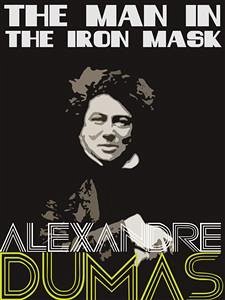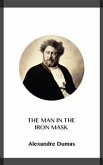The Man in the Iron Mask is a name given to a prisoner arrested as Eustache Dauger in 1669 or 1670, and held in a number of jails, including the Bastille and the Fortress of Pignerol (today Pinerolo). He was held in the custody of the same jailer, Bénigne Dauvergne de Saint-Mars, for a period of 34 years. He died on 19 November 1703 under the name of Marchioly, during the reign of Louis XIV of France (1643–1715). The possible identity of this man has been thoroughly discussed and has been the subject of many books, because no one ever saw his face, which was hidden by a mask of black velvet cloth.In the second edition of his Questions sur l' Encyclopédie (French for "Questions on the Encyclopedia"), published in 1771, the writer and philosopher Voltaireclaimed that the prisoner wore an iron mask and was the older, illegitimate brother of Louis XIV. In the late 1840s, the writer Alexandre Dumas elaborated on the theme in the final instalment of his Three Musketeers saga: here the prisoner is forced to wear an iron mask and is Louis XIV's twin brother. What facts are known about this prisoner are based mainly on correspondence between his jailer and his superiors in Paris.Dumas constructs the plot around the notion that the Man in the Iron Mask is the twin brother of Louis XIV, Philippe, who had been concealed and imprisoned from birth by his father, Louis XIII, and his mother, Anne of Austria, "for the good of France". Only a very few people living at the start of the novel know of Philippe's existence; these include his mother, Anne, and her former confidante, the Duchesse de Chevreuse. Chevreuse has let the secret slip to Aramis, the Bishop of Vanne and a former lover of Chevreuse.
Bitte wählen Sie Ihr Anliegen aus.
Rechnungen
Retourenschein anfordern
Bestellstatus
Storno









